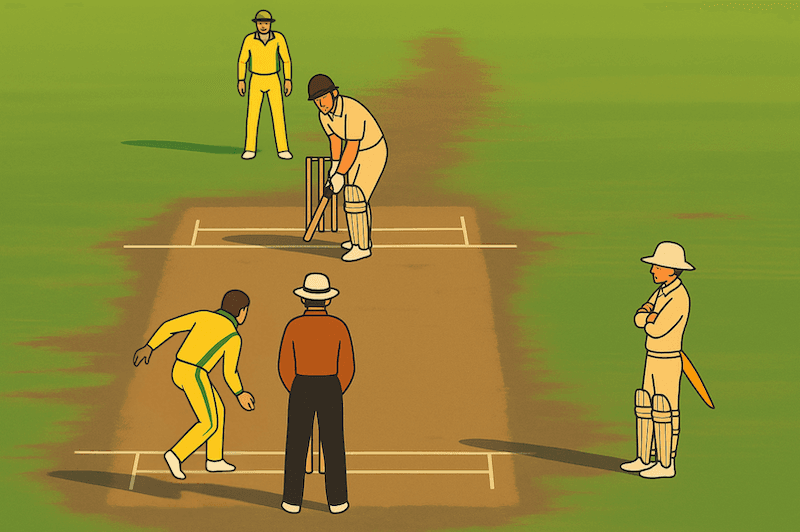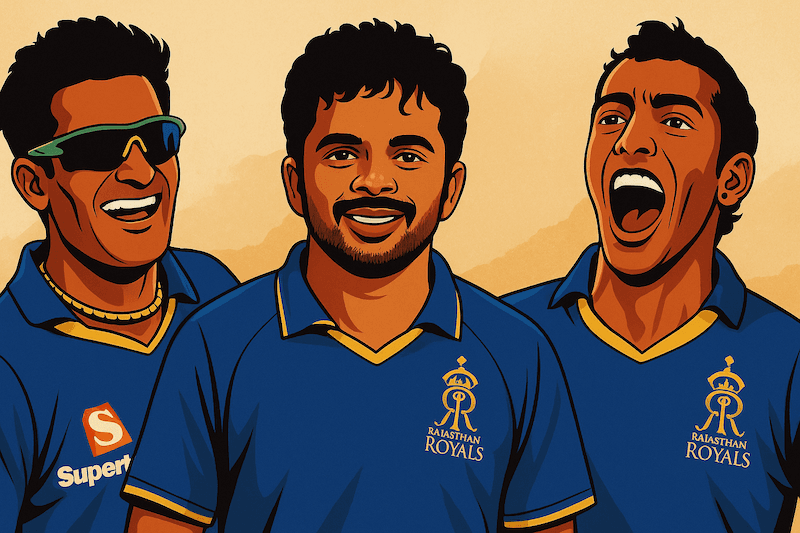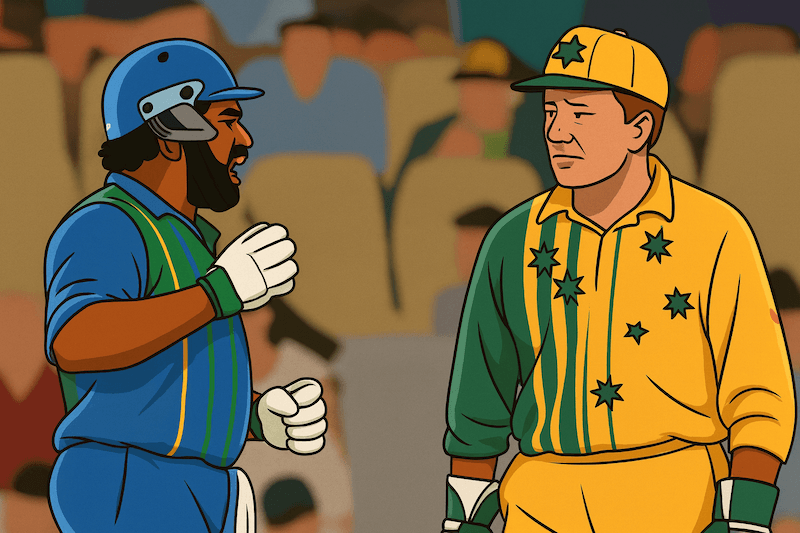
At the turn of the new millennium, South Africa was rising as one of cricket's strongest teams under the leadership of Hansie Cronje. Known for his calm authority and sharp cricketing mind, Cronje was admired not just at home but across the cricketing world.
But in April 2000, the cricket community was stunned when Delhi Police revealed secret conversations between Cronje and an Indian bookmaker named Sanjeev Chawla. Within days, the man once celebrated as a national hero was accused of match-fixing. What followed was a scandal that spread across nations, involving players from both South Africa and India, and changed cricket forever.
The Incident
- The first shock came when Delhi Police announced they had taped conversations between Cronje and a bookmaker during South Africa’s tour of India. Cronje initially denied the claims, but the evidence grew stronger.
- Just days later, Cronje made a stunning confession: he had accepted money and gifts from bookmakers in exchange for providing information and trying to influence certain parts of matches. He admitted to taking around US$10,000 to US$15,000, though he insisted he never fixed the actual outcome of games.
- The King Commission inquiry in South Africa revealed more details. Herschelle Gibbs admitted he had been offered money by Cronje to score fewer than 20 runs in an ODI, though he later denied carrying it out. Henry Williams, a South African bowler, confessed he was approached to concede runs deliberately.
- In India, the scandal reopened old wounds. The Central Bureau of Investigation (CBI) in India confirmed the involvement of Mohammed Azharuddin, who introduced Cronje to a bookmaker. Former Indian players Ajay Jadeja and Manoj Prabhakar were also investigated, with Azharuddin and Jadeja facing bans.
The Aftermath
- The revelations rocked South African cricket. The United Cricket Board of South Africa (UCBSA) immediately removed Cronje as captain. The King Commission hearings laid bare the scale of corruption.
- Hansie Cronje: Life ban from cricket in October 2000.
- Herschelle Gibbs & Henry Williams: Suspended for six months in 2000 after admitting their involvement.
- Mohammed Azharuddin: Banned for life by the BCCI in December 2000 (later overturned by an Indian court in 2012).
- Ajay Jadeja: Banned for five years (ban lifted in 2003 by Indian court).
- Manoj Prabhakar: Banned for five years for his role in the scandal.
- These punishments showed that corruption was not limited to one team or one country — it was a cricket-wide problem.
Legacy and Impact
- The Hansie Cronje scandal was one of cricket's biggest wake-up calls. It revealed how deeply bookmakers had entered the sport and forced the ICC and national boards to establish Anti-Corruption Units (ACUs) and tighter player codes of conduct.
- For South Africa, it was heartbreaking. Cronje had been a symbol of their return to international cricket after apartheid. His fall stained not only his name but also the country's cricketing image.
- Tragically, in 2002, just two years after the scandal, Cronje died in a plane crash at the age of 32. While his cricketing talent and leadership are still remembered, his legacy is forever tied to the scandal that shook the game.
Explore More Stories
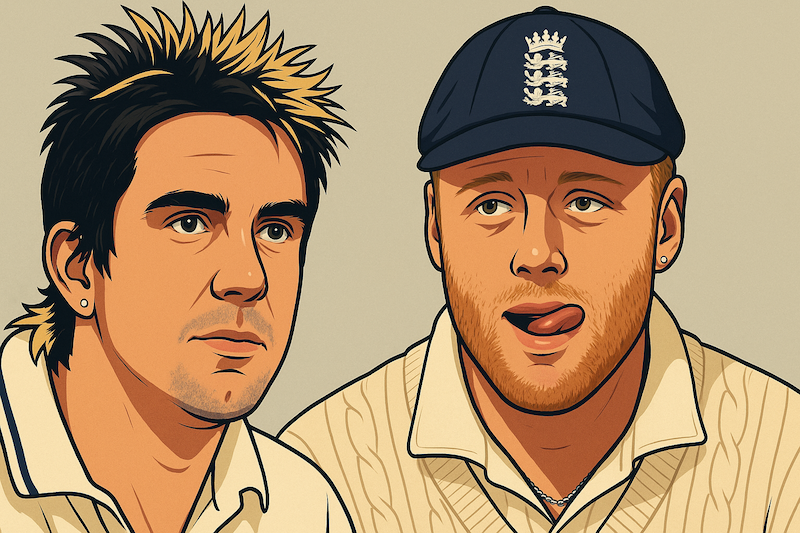
2005 Ashes: The Summer Cricket Became Theatre
The 2005 Ashes was more than just a cricket series. It was a rollercoaster of emotion, courage, and unforgettable moments that brought Test cricket back to life. England’s long wait finally ended, and the world watched history unfold.
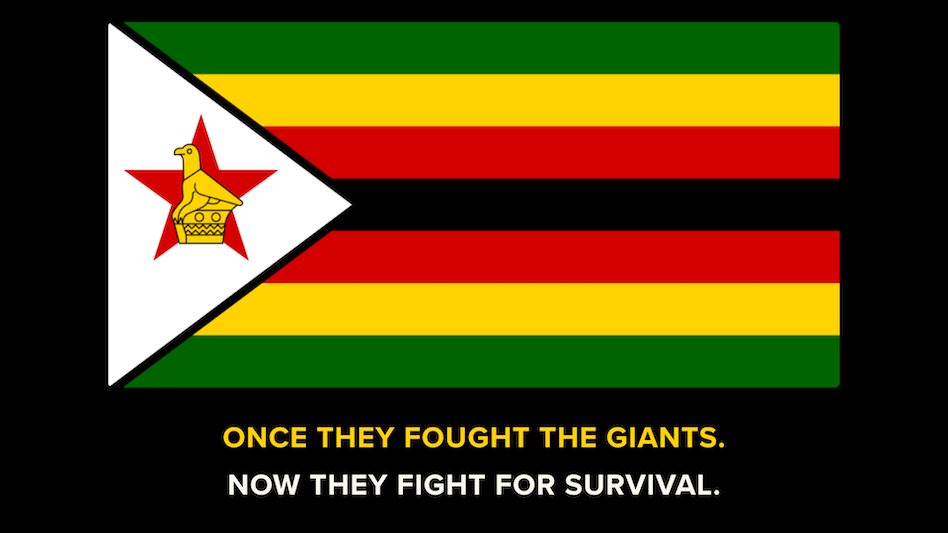
What Happened to Zimbabwe Cricket? The Rise, Fall, and Fight for Survival
Once they challenged the world’s best, now they struggle to stay afloat. Zimbabwe cricket’s journey from the glory of 1999 to years of chaos and heartbreak is a story of politics, power, and lost pride, and of a nation still dreaming of revival.
Final Note
The story of Hansie Cronje and the players linked to this scandal is a reminder of how quickly trust can collapse in sport. It is not just about one man's choices, but about how corruption can spread across teams and countries.
Even today, whenever cricket talks about integrity, Cronje’s name along with those of Azharuddin, Jadeja, Gibbs, and others returns as a warning. No matter how great the player, the game's spirit must come first.



